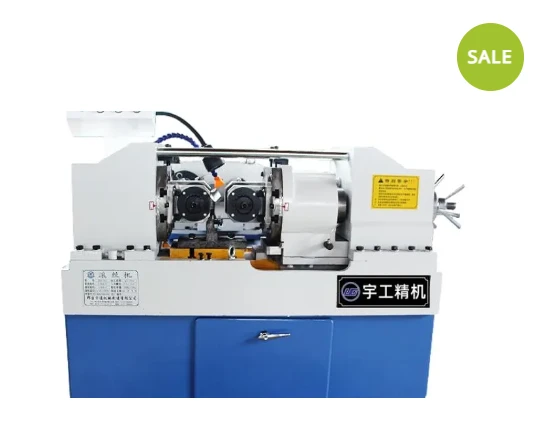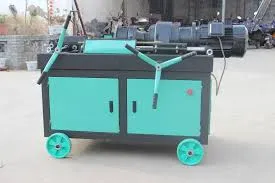
-
 Afrikaans
Afrikaans -
 Albanian
Albanian -
 Amharic
Amharic -
 Arabic
Arabic -
 Armenian
Armenian -
 Azerbaijani
Azerbaijani -
 Basque
Basque -
 Belarusian
Belarusian -
 Bengali
Bengali -
 Bosnian
Bosnian -
 Bulgarian
Bulgarian -
 Catalan
Catalan -
 Cebuano
Cebuano -
 Corsican
Corsican -
 Croatian
Croatian -
 Czech
Czech -
 Danish
Danish -
 Dutch
Dutch -
 English
English -
 Esperanto
Esperanto -
 Estonian
Estonian -
 Finnish
Finnish -
 French
French -
 Frisian
Frisian -
 Galician
Galician -
 Georgian
Georgian -
 German
German -
 Greek
Greek -
 Gujarati
Gujarati -
 Haitian Creole
Haitian Creole -
 hausa
hausa -
 hawaiian
hawaiian -
 Hebrew
Hebrew -
 Hindi
Hindi -
 Miao
Miao -
 Hungarian
Hungarian -
 Icelandic
Icelandic -
 igbo
igbo -
 Indonesian
Indonesian -
 irish
irish -
 Italian
Italian -
 Japanese
Japanese -
 Javanese
Javanese -
 Kannada
Kannada -
 kazakh
kazakh -
 Khmer
Khmer -
 Rwandese
Rwandese -
 Korean
Korean -
 Kurdish
Kurdish -
 Kyrgyz
Kyrgyz -
 Lao
Lao -
 Latin
Latin -
 Latvian
Latvian -
 Lithuanian
Lithuanian -
 Luxembourgish
Luxembourgish -
 Macedonian
Macedonian -
 Malgashi
Malgashi -
 Malay
Malay -
 Malayalam
Malayalam -
 Maltese
Maltese -
 Maori
Maori -
 Marathi
Marathi -
 Mongolian
Mongolian -
 Myanmar
Myanmar -
 Nepali
Nepali -
 Norwegian
Norwegian -
 Norwegian
Norwegian -
 Occitan
Occitan -
 Pashto
Pashto -
 Persian
Persian -
 Polish
Polish -
 Portuguese
Portuguese -
 Punjabi
Punjabi -
 Romanian
Romanian -
 Russian
Russian -
 Samoan
Samoan -
 Scottish Gaelic
Scottish Gaelic -
 Serbian
Serbian -
 Sesotho
Sesotho -
 Shona
Shona -
 Sindhi
Sindhi -
 Sinhala
Sinhala -
 Slovak
Slovak -
 Slovenian
Slovenian -
 Somali
Somali -
 Spanish
Spanish -
 Sundanese
Sundanese -
 Swahili
Swahili -
 Swedish
Swedish -
 Tagalog
Tagalog -
 Tajik
Tajik -
 Tamil
Tamil -
 Tatar
Tatar -
 Telugu
Telugu -
 Thai
Thai -
 Turkish
Turkish -
 Turkmen
Turkmen -
 Ukrainian
Ukrainian -
 Urdu
Urdu -
 Uighur
Uighur -
 Uzbek
Uzbek -
 Vietnamese
Vietnamese -
 Welsh
Welsh -
 Bantu
Bantu -
 Yiddish
Yiddish -
 Yoruba
Yoruba -
 Zulu
Zulu
High Precision Vertical Thread Rolling Machine – Reliable Factory & Service Solutions
- Introduction to Vertical Thread Rolling Machine
- Technical Advantages and Innovations
- Factory Comparison: Major Players in the Market
- Customization Options for Thread Rolling Solutions
- Industrial Applications: Real-World Use Cases
- After-Sales and Service Considerations
- Conclusion: Why a Vertical Thread Rolling Machine is a Strategic Investment

(vertical thread rolling machine)
Introduction to Vertical Thread Rolling Machine
As manufacturing industries evolve, the vertical thread rolling machine
has become a cornerstone in the production of precise and hardened threaded components. With a global demand that exceeded $820 million in 2023 and is projected to escalate to $1.2 billion by 2028, these machines represent a pivotal investment for fastener manufacturers, automotive sectors, and construction supply chains. The core advantage lies in the vertical configuration, which allows for gravity-assisted feeding, improved operator safety, and superior productivity over legacy horizontal or manual threading methods. Additionally, with the advent of advanced sensor technology and servo-driven systems, manufacturers can achieve dimensional repeatability rates over 99.5%, drastically reducing wastage and ensuring product consistency.
Technical Advantages and Innovations
The modern vertical thread rolling machine leverages precise electronic controls, high-tensile carbide dies, and closed-loop feedback systems. This enables positional accuracy as tight as ±0.01mm, translating into higher tolerance fulfillment and extended die life. Data from industry surveys reveal machines capable of rolling threads on components ranging from 3mm to 42mm diameter at speeds exceeding 400 pieces per hour. Innovations such as automatic load/unload, integrated coolant filtration, and digital monitoring dashboards deliver significant operational benefits. Compared to manual threading, downtime due to die changes has been reduced by nearly 60%, while throughput and surface finish have reached unprecedented levels. These advancements position thread rolling as the preferred method for cold forming threads on critical fastener and automotive parts.
Factory Comparison: Major Players in the Market
Selecting the right circular thread rolling machine factory can impact a company’s long-term productivity and cost-efficiency. Below is a table comparing key specifications and capabilities of leading factories based on recent industrial benchmarks:
| Factory | Max Rolling Diameter | Production Speed (pcs/hr) | Automation Level | Warranty Period | Energy Consumption (kWh) | Support & Service |
|---|---|---|---|---|---|---|
| TransRoll Engineering | 42mm | 420 | Full, IoT-enabled | 30 Months | 5.8 | 24/7 Global |
| FastenTech Machinery | 35mm | 350 | Semi-Automatic | 24 Months | 7.1 | Remote Diagnostics |
| RollForm Solutions | 40mm | 410 | Automatic | 36 Months | 6.2 | On-Site Engineers |
| MegaThread Co. | 32mm | 305 | Semi-Automatic | 18 Months | 6.8 | Standard Office |
When evaluating a circular thread rolling machine factory, it is vital to consider these factors: maximum rolling capacity, production speed, automation integration, after-sales support, and operational efficiency. Factories investing heavily in IoT-enabled monitoring and global service infrastructure offer significant competitive advantages for international buyers.
Customization Options for Thread Rolling Solutions
Today’s thread rolling requirements are highly varied, from micro-threading medical screws to large-diameter bolts for infrastructure. Leading manufacturers deliver bespoke thread rolling machine solutions tailored to material types (carbon steel, stainless, titanium alloy), diameters, and thread profiles (metric, UNF, ACME, Trapezoidal). Servo-driven actuators, adaptable die holders, and programmable PLC interfaces permit rapid changeovers—cutting setup time for new product batches by up to 75%. Moreover, integration with automated lines and robotic loading systems allows seamless production without manual intervention. In 2023, over 62% of new orders in the European market specified at least one customized configuration, highlighting the industry’s shift toward flexible, non-standardized thread rolling solutions. Such customized machines are engineered for longevity and resilience, sustaining continuous operation under harsh industrial environments.
Industrial Applications: Real-World Use Cases
Multiple sectors rely on vertical and circular thread rolling to meet their exacting output needs. In the automotive industry, for instance, precision-threaded fasteners are vital for engine assemblies and suspension components, where thread integrity directly influences safety and reliability. Leading companies, such as Daimler, have reported an 18% reduction in warranty claims since transitioning to advanced thread-rolled components for critical applications. Construction hardware manufacturers use thread rolling machines for anchor rods, rebar couplers, and scaffolding bolts, achieving output rates up to 380 units per hour. In the oil & gas sector, large-scale vertical thread rolling machines handle casing tubes with diameters up to 120mm for deep-well drilling, with typical cycle times as low as 45 seconds per piece. Aerospace demands tight tolerances for titanium threaded components, which these machines repeatedly deliver within micrometer accuracy. These diverse use cases underscore the versatility and necessity of thread rolling equipment across key industrial segments.
After-Sales and Service Considerations
The acquisition of a thread rolling machine is merely the beginning of a long-term relationship with the supplier. Premier manufacturers distinguish themselves by offering comprehensive thread rolling machine service packages—remote diagnostics, predictive maintenance programs, operator training, and expedited spare parts logistics. Data published by industry consortiums in 2022 reveal that buyers who secured extended service warranties experienced a 40% lower average downtime compared to those with standard coverage. Furthermore, the integration of IoT monitoring and data logging enables predictive maintenance, reducing unplanned breakdowns by up to 53%. Supplier responsiveness, multi-language technical support, and ongoing software updates are additional elements that contribute to maximizing uptime, ensuring that each vertical thread rolling machine operates at full rated capacity without unscheduled interruptions. These after-sales factors should weigh heavily during the procurement phase.
Conclusion: Why a Vertical Thread Rolling Machine is a Strategic Investment
As industries accelerate toward high-precision, high-volume production, integrating a vertical thread rolling machine represents a proactive strategy for operational excellence, quality assurance, and resource efficiency. Backed by compelling performance data, technical innovations, and robust service support, these machines deliver measurable ROI within the first 12 to 24 months of deployment. When selecting a vendor, due diligence in evaluating technical specifications, factory credentials, and support structures ensures optimal machine performance and lifecycle value. In a globalized and demanding market where tolerances are shrinking and throughput goals are escalating, investing in advanced vertical and circular thread rolling technology is not just an upgrade—it’s an imperative for companies aiming for industry leadership.

(vertical thread rolling machine)
FAQS on vertical thread rolling machine
Q: What is a vertical thread rolling machine used for?
A: A vertical thread rolling machine is designed to produce high-precision threads on bolts, screws, and rods. It operates by pressing dies onto workpieces vertically. This method is efficient and suitable for high-volume thread production.
Q: How does your circular thread rolling machine factory ensure product quality?
A: Our factory employs strict quality control measures and advanced inspection tools. Every circular thread rolling machine is tested before shipment. We are ISO certified for added assurance.
Q: Do you offer thread rolling machine service and maintenance?
A: Yes, we provide comprehensive thread rolling machine service, including maintenance and repairs. Our technicians are trained to handle all machine models. Quick response and quality support are our priorities.
Q: What materials can be processed by a vertical thread rolling machine?
A: Vertical thread rolling machines can handle a range of metals including steel, stainless steel, and aluminum. The machines accommodate various diameters and thread profiles. Contact us for material compatibility details.
Q: How can I request a quote for a vertical thread rolling machine?
A: You can request a quote by visiting our website or contacting our sales team directly. Provide your requirements for a tailored solution. We respond to all inquiries promptly.
